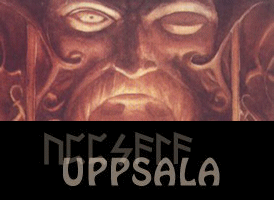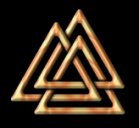
Odin
Loki
Berserkergang
Valkyries
Alfish Worship
Runes
Asatru
Factions in Asatru
Heathen
Mysticism
Please help me continue to write new books, write new blog posts, and keep this site ad-free:
Athling: An honorific. It sort of means "noble", but doesn't have to refer to someone of noble birth so much as someone who shows the ideal attributes of the nobility: honor, bravery, loyalty, etc.
Berserkergang: An ecstatic martial art/spiritual practice. A form of Odinic worship.
Blot: Blessing. Usually involves the sprinkling of water on an object or person.
Einherjar: "Single-harrier." Term for the slain who reside in Valhalla.
Galdr: The practice of effecting change, either to the inside or outside worlds, through use of runes, and certain songs.
God, goddess: A wight of exeptional ability or power, which is divine. Intimately connected with the land, or a people, or some archetypal ability or practice. In Asatru, every thing, every person, every concept even has a god.
Heathen: Literally means "heath-dweller", and refers to practitioners of the Norse pagan faith.
Heiti: Technically means nickname, refers to a particular aspect of a god, or a god under a certain guise.
Hypostasis: A heiti that is so well-developed that it is practically an independent being.
Minni: Literally, memory or remembrance. Also taken to mean subconscious instincts.
Neopagan: Of or pertaining to one of the pagan faiths created in modern times. An example of this includes Santeria, which is an evolution of Vodoun as it became reinterpreted in America, and is possibly the largest neopagan faith. Wicca is another, possibly the second largest, and was formed vaugely in the style of paleopagan faiths as interpreted through Spiritualism, Golden Dawn lore, Cabalism, Aleister Crowley, and Gerald Gardner in the 1950's, and later borrowed heavily from New Age spirituality. Earth-based religions, generally also formed in or after the '50's comprise most of the rest of the neopagan faiths. In neopagan practice emphasis is generally placed on personal gnosis over scholarship.
Orlog: Literally, primal layer. Refers to the belief that the present is created from the past, similar to saying "cause and effect" or karma.
Pagan: Of or pertaining to one of the polytheistic faiths indiginous to Europe. Literally means "country dweller". Unfortunately nowadays, due to extensive media disinformation, the word is being used as a synonym for Wicca.
Paleopagan: Of or pertaining to one of the pagan or heathen faiths originating in the pre-Christian era. If there is a direct line of descent, this can also apply to currently practiced religions, such as Hinduism.
Reconstructionist: Modern heathen or pagan who tries to worship the way the paleopagans did. This is done by putting any question or issue of faith or practice to the test by comparing it to known sources of information, such as the Eddas, or Sagas, or folk beliefs, or archaeology, or numismatics. If the issue or practice is inconsistent with this information (though standards vary) then it is discarded. Emphasis is placed on research and scholarship. Examples of reconstructionist faiths are Asatru and Hellenism.
Rune: Mystery. Also a rune is a letter of the Norse "alphabet", or futhark, and has both a phonetic value and a concept association.
Seidh: Indigenous soul-craft of the Norse, involved journeys outside the body, soul retrieval, prophecy. Similar to but not identical with shamanism.
Spirituality: A way of living that emphasises a constant awareness of the spiritual dimension of nature, without any acknowledgement of a contractual relationship between the material world and the spiritual. Neopagan religions generally will not worship, but stress spirituality. (Note: Santeria is a notable exception to this.)
Valknut: "knot of the slain." A symbol
associated on primitive rock carvings with Odin, taken in
modern times as his insignia by his devotees. Properly
speaking, it should only be worn after years of serious
thought, and only when one is ready to make the commitment
to live or die by the god's choosing.

Wight: A being, especially a mythic being.
Worship: The practice of ascribing qualities of worth to a divinity. In modern thought it is generally believed that this sort of focused attention both sustains (feeds) the deity, and it also calls attention to the worshipper from the divinity, and possibly aid as well. It is the result of a belief fundamental to the worshipper's religion that gods and humans both are a part of the world, and as such have a natural symbiotic relationship, and that the duties of worship are that which is owed by us to them, in payment for those duties they have that they fulfill to us. Reconstuctionist religions generally worship, due often to a fundamental belief in "a thing for a thing", in paying one's debts.
Wyrd: A word somewhat like fate, but the word comes from a root meaning "past", thus the emphasis is on fate derived from one's past actions.